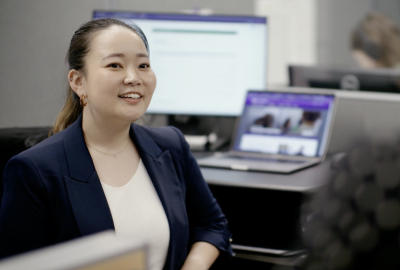
Still Accepting Applications
Many graduates of the International Education program have gone on to pursue successful careers in the field of International Education. Read ahead to learn more about several of our recent alumni:
Master's of International Education Alumni
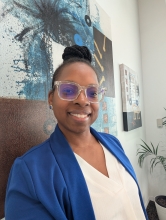
JILLIAN BARKER LANGFORD '24
Cross Cultural Exchange and Study Abroad track
What is your current position and employer?
I am currently the Program Assistant for the Ralph J. Bunche International Affairs Center (RBC) at Howard University, a historically black college or university (HBCU).
What was something that you especially value from your time in the international education program? Was there a course or professor, or a particular challenge that sticks with you?
I value many things from the program, but one that sticks out is community and establishing relationships. My cohort, though small, was friendly and open. It seemed like we all had class together for the first semester, which helped us bond and enabled us to share resources and connections. Now, we're all cheering each other on as we prepare to cross the stage together.
The course that stands out most is "The Practice of International Education" taught by Dr. Joann Halpern because I met my then-future-now-current boss through a course assignment from that class called Interview with an SIO (Senior International Officer). That was one of the most personally influential course assignments I've ever done. Following that assignment, I kept in touch with Howard's SIO, which eventually helped me land my current position. Dr. Halpern also remained a friend and mentor to me throughout my time in the program. She is one of many people who is tremendously generous with her network and is willing to do introductions and actively connect you to people. I can't thank her enough!
How did the program prepare you for your professional life?
The IE program prepared me for my professional life in that it provided me with the language and a detailed aerial view of the field. The field is divided into a few different specialties or focus areas, and over time, and depending on which classes you take, you can get a sense of each one in detail. Attending the NAFSA conference, which I HIGHLY recommend, also brings the bigger picture into much better focus. You will learn A LOT and meet a great many people--it can be a bit overwhelming to experience and process it all--but it is 1000% worth it!
Now I know many foundational things and organizations in the field, which is an excellent starting point for conversations and making connections. Working at an HBCU, I now get the opportunity to "specialize" on the job in what black internationalization means, looks like, and how it plays out in the world by uplifting and responding to the needs and interests of the black community within this larger field.
What advice/thoughts would you offer prospective students about the program?
Speak up and share your ideas AND questions. Get involved in the conversation. Participate in as many events, conferences, and forums as your energy allows - you won't regret it. Don't be afraid to bring up the topic or idea that no one else has or to advocate for the group/community that no one else has mentioned/is involved in. Build community/your network while exploring various interests (and support your classmate's work, too!), because you never know when inspiration may strike or where you'll find a connection! Also, try to do some assignments a different way than you normally do, because this allows your brain to stretch and your skills to grow---challenge yourself!
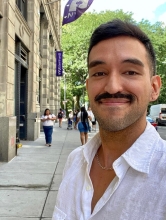
EDUARDO REYNA OIE '23
International Development and Education/Peace, Conflict and Humanitarian Action track
What is your current position and employer?
Study Away Coordinator at the Global Programs New York City office, NYU.
What was something that you especially value from your time in the international education program? Was there a course or professor, or a particular challenge that sticks with you?
First, its versatility. Given the multiple sets of issues that can be explored in the IE field, I found being able to take electives from other programs, even outside of Steinhardt, was definitely a plus. The second aspect was the size of the cohort and the close relationship with faculty. The faculty were very approachable and dedicated to students’ well-being, academic success, and career growth. Finally, the friends I made in and out of class were an absolute highlight of my time in the city. And the city itself–The diversity of people, entertainment options, cultural activities, job opportunities and ways of life– can’t be found in such a condensed space anywhere else in the world.
What do you imagine yourself doing in the next 5 years?
I see myself working to impact policy tied to the intersection of human rights, education policies, mental health and the protection of queer youth. I potentially see myself at an international organization or an institution dedicated to these issues. As a proud member of the LGBTIQ+ community I feel it is important to work towards the complete realization of our rights, even more so when I have had the privilege to study at a top tier university in a foreign country.
What advice/thoughts would you offer prospective students about the program?
It is important to arrive with a general idea of your interests because it is so versatile that you can make it your own by tailoring it to your interest. But also to come with an open mind because the same versatility of the program might open your eyes to issues that you didn’t consider before that might actually be your calling. Make the most of what NYU has to offer. Join a student club, there are so many of them that at least one will cater to your academic or personal interest, attend events, build your network, etc. When in doubt, always attend, ask, reach out.
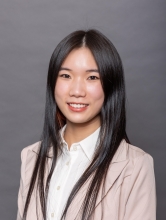
ABIGAIL ZHOU '23
Cross-Cultural Exchange and Study Abroad track
What is your current position and employer?
I am the Global Markets Coordinator for IE University.
What was something that you especially value from your time in the international education program? Was there a course or professor, or a particular challenge that sticks with you?
I think it's extremely helpful that we had faculty members who are high-profile practitioners in the IE field. For example, I took a class with Joann Halpern, who works at the Hasso Plattner Institute, and has abundant experience with design thinking and cultural exchange. I also had a great class with Sherif Barsoum, who is the Associate Vice President of the Office of Global Services.
How did the program prepare you for your professional life?
One of the most important things I learned is the concept of cultural humility, which I find is really applicable in conducting cultural exchange programs and designing study abroad experiences for students. Being patient and humble towards others who have different cultural backgrounds is so important, often more important than just reading and absorbing information about other cultures, especially because information can often be presented in a generalized and even stereotypical way. I truly believe that it is through humility and kindness that we can achieve better understanding among different communities.
What advice/thoughts would you offer prospective students about the program?
First and foremost, try to sign up for office hours as much as you can because it will really enrich your experience just to learn from faculty outside the classroom and to help you build your networks. I’ll also say that grad studies require a lot of self-discipline, especially because there is a lot of reading! It’s so important and valuable to be prepared to engage in meaningful discussions that happen in every class.
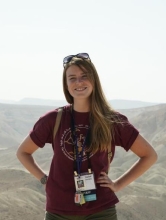
RACHEL DURNING '23
International Development and Education/Peace, Conflict and Humanitarian Action Track
What is your current position and employer?
I am the Development Officer, Grants Management at Scholars at Risk.
What inspired you to pursue your degree in International Education?
My experiences working in areas connected to international education, including teaching English abroad, working as a study abroad coordinator, and managing the international communications for an environmental peace-building education program for Israelis and Palestinians, led me to want to pursue this degree.
What was something that you especially value from your time in the international education program? Was there a course or professor, or a particular challenge that sticks with you?
I loved that I was able to build a close personal relationship with my professors, and work with them on interesting projects they have going on. The smaller size of this program allows professors to give personalized attention to the students and direct them towards opportunities. My professors and classmates were really helpful when it came time to search for internships and jobs. They connected me with alumni who had worked in the organizations that interested me, to have informational interviews. I also had the opportunity to work with Professor Dana Burde on welcoming displaced scholars from Afghanistan to NYU, which was a dream come true.
What advice/thoughts would you offer prospective students about the program?
I would tell them to enjoy their time as a student and be sure to take advantage of everything that the program (and NYU) has to offer! I loved that this program allowed us to choose from a great variety of electives, and I wish I had taken even more than I did. I was focused on finishing as soon as possible, but now I wish I had considered staying for even longer.
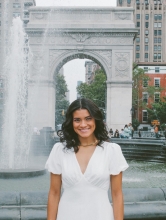
JASMINE VELA '22
International Development and Education/Peace, Conflict Humanitarian Action Track
What is your current position and employer?
Case Support Associate, Young Center for Immigrant Children’s Rights.
How did the program prepare you for your professional life?
In my current position, I advocate for unaccompanied children’s best interests who have been released from the Office of Refugee Resettlement into the New Jersey community. The IE program helped me prepare for this position because I was able to take classes that I was passionate about, learn from professors with similar values, and learn about applying theories to the real world. Getting hands-on experience through my internship was the cherry on top.
What was something that you especially value from your time in the international education program? Was there a course or professor, or a particular challenge that sticks with you?
A course that I enjoyed and found a love for was Professor Heddy's International Human Rights Activism/Education class. Migrant rights was one of the topics which really stood out to me because my parents were migrant workers. As a child, I wasn't aware of the conditions they had to work under or how little they got paid. This course made me realize that I wanted to pursue women's or children's rights, which ultimately led me to my current job.
Another great experience was my internship in Ghana with World Education. This project focused on girls who were out of school, pregnant, parenting, or had developmental/physical disabilities. I was able to collect qualitative and quantitative data, sit in a meeting with UK Aid, and draft a technical brief for the project. Seeing this project firsthand and meeting some of the girls had a profound impact on me personally and professionally.
What advice/thoughts would you offer prospective students about the program?
I was able to form relationships that will last a lifetime. This program will challenge you in the best ways. Sometimes you will have to lean on your classmates and professors for guidance, which is all part of the experience. Being part of the International Education program has opened so many doors for me, and I do not for a second regret the decision to move to NYC from a small town in Texas. The IE program made me realize the change I wanted to make in the world.
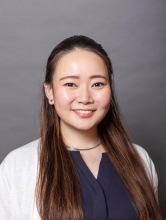
YUI TAKAHASHI '22
Cross Cultural Exchange and Study Abroad Track
What is your current position, employer, and what are some of the responsibilities you have at your job?
I am a Coordinator of Global Programs at New York University. My team supports study-away students from NYU Abu Dhabi and Shanghai while they are in New York City. My main responsibilities are planning events each week, communicating with students via social media and newsletters, and managing student leaders and graduate assistants.
How did the program prepare you for your professional life?
Courses in the program taught me very practical skills such as F-1 visa knowledge, how to talk to international students who are dealing with homesickness or culture shock, and how to facilitate orientation-like activities with new students. I think I learned most by having the opportunity to be surrounded by like-minded people who were interested in using international education and study-abroad experiences to promote positive change in the world.
What was something you especially value from your time in International Education? Was there a course or professor, or a particular challenge that sticks with you?
I was part of the team that made up the International Education Student Board. That experience allowed me not only to improve my leadership, time management, and interpersonal skills, but also to make lifelong friends and professional connections.
One of the courses that sticks with me was the Practice of International Education taught by Dr. Joann Halpern. It was different from other courses because it really focused on very practical skills that are desired in the field.
What advice/thoughts would you offer prospective students about the program?
I was initially overwhelmed and nervous about my ability to contribute when I started the program. Students in the IE program come from so many different backgrounds, and it is normal to have different opinions from others. The IE program made me feel safe sharing my ideas, stories, and experiences, and I learned how important it is for students to feel heard. It is something I strive to do now with study abroad students in my current professional role: ensuring that they feel that their perspectives are valued.
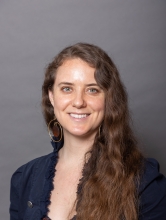
MEGAN SMITH '22
International Development and Education/Peace, Conflict and Humanitarian Action Track
What is your current position and employer?
I am currently a research assistant for Dr. Heddy Lahmann who is leading a global arts education study for the Community Arts Network and Porticus Foundation.
What was something that you especially value from your time in the international education program? Was there a course or professor, or a particular challenge that sticks with you?
I became a better researcher and grant writer through the IE program at Steinhardt. Being a peace and conflict leader for Doctor Elisabeth King’s undergraduate class allowed me to work closely with Dr. King and other master's and Ph.D. students on a research project where I developed skills in Endnote, online search engines, coding, and facilitating class discussions. I actively applied these skills during my internship in Accra, Ghana at the Foundation for Contemporary Art, where I supported the organization with grant writing, project management, and researching arts education in public schools.
Each professor offered a unique lens to the different qualitative and quantitative approaches of research in the international education field to gather culturally sound information. I also appreciated that my professors were open to feedback and changing up projects based on students personal interests and research goals. For my final project in Dr. Heddy Lahmann’s International Human Rights Activism/Education class, I offered a meditation directed towards human rights and international workers, as a supportive practice of well being in a field that dabbles in the darker dimensions of humanity.
What advice/thoughts would you offer prospective students about the program?
Being in New York is incredible and the perfect cultural hub to study an international degree. Be ready to work and develop your cultural lens! It is important to understand the privilege of being able to study, travel, and work internationally, which requires an awareness of the deeper political, social, environmental, and economic impacts of inhabiting foreign spaces. There is white and western privilege, economic privilege, educational privilege, all of which require us as IE professionals to be cognizant of our positionality in the spaces we travel and work to mitigate harm.
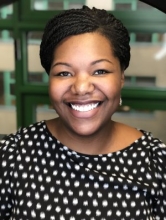
TOYA HALL '18
What is your current position and employer?
I’m an Instructional Recruiter for Uncommon Schools Network.
In what ways did the IE program help prepare you for working?
One way the IE program prepared me for my previous role was by expanding my knowledge of various world perspectives. I was able to incorporate this knowledge and create inclusive curriculum units for schools. With IE as my foundation, I critically analyzed current financial narratives regarding economic gaps between demographics internationally. This allowed me to create curriculum that highlighted these gaps and execute BlackFem’s mission—to close the economic generational gaps for minorities through a feminist lens.
What was your most influential experience in the IE program?
My most influential experience in the IE program was building relationships with faculty, staff, and fellow colleagues. The bonds I established and cultivated allowed me to take advance of NYU sponsored opportunities, both on domestically and internationally. Through these networks, I was able to gain insight on various perspectives in IE, strengthen my leadership skills, and develop my interest in diversity efforts in our field. These connections I formed will transcend my graduate career and I am grateful for this.
What advice/thoughts would you offer prospective students about the program?
Job searching can be a lengthy process thus I have 3 pieces of advice as current students applying. First, tailor your cover letter and resume to every job you apply for. Identify the verbs and soft/technical skills in the job description and explicitly address them in your cover letter and resume. If you spend time on the details, companies notice and it pays off in the long run. Second, utilize all your resources - NYU professors/advisors, IE colleagues/alumni, Wasserman, etc. Your network can assist you in all aspects of the process. For example, Wasserman assisted me by reviewing my cover letter and resume, preparing me for interviews, and providing me with the tools to negotiate work benefits. Lastly, it is ok if you become frustrated through the process. Instead of suppressing your frustration, give yourself time to feel those emotions by journaling or discussing it with friends who are going through the process with you. Chances are your friends might be feeling similarly and you can support each other.
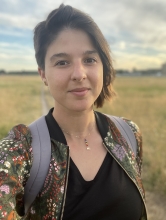
PAMELA D’ANDREA MARTINEZ '16
What is your current position and employer?
I’m a researcher and resource specialist at the NYU Metro Center, a Ph.D. candidate in Urban Education, and an adjunct professor in the Department of Teaching and Learning at New York University.
What is your favorite part of your current job positions?
While I identify as a researcher, I consider the most important part of my work to connect research to policy and practice. My favorite part of working at the NYU Metro Center is that I get to work directly with schools, youth, community groups, and state leaders to support them in changing pedagogical and systemic practices to promote educational equity and belonging.
How did the International Education program help you prepare for your career?
The IE program provided me the learning opportunities I needed to develop a stronger critical and analytical lens when addressing problems in education. Ironically, when I started the program, I was sure that research would not be my path. Still, the required methods courses and having professors who use their research for policy change, program development, and other practical applications, equipped me with a new image of what research is and the skills I would later need to move into a research career. I attribute these transformative learning experiences to the excellent teaching and mentorship I received from Drs. Hua-Yu Sebastian Cherng, Carol Anne Spreen, and Dana Burde as well as the incredible TAs who are now my colleagues in the field.
What was your favorite part of the IE program?
I appreciated that the IE program was flexible enough to allow me to shape parts of my curriculum. This sense of agency was important to me; my interests are transdisciplinary and my approach to working is always to wear many hats. The program was welcoming of that and it seemed to me that this flexibility was built-in strategically. Because I got to explore, one of my most formative experiences was the opportunity to study abroad in South Africa with Professor Teboho Moja. The foundational work I was doing in the IE program alongside studying abroad solidified my path in educational equity scholar activism.
What advice/thoughts would you offer prospective students about the program?
I believe that having a community is more important than networking. I always suggest to current and prospective students to build strong, reciprocal relationships with the professors, TAs, other students, and program administrators. The community that comprises this program is generous with its time and insights, and I found many social justice-oriented life-long colleagues in the IE program.
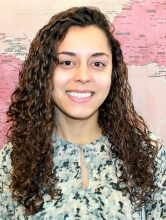
MARISA SILVA '16
What is your current position and employer?
My current position is at One To World as the Coordinator of Enrichment Programs.
What was your favorite part of the International Education program?
It was such a lovely experience to spend 2 years meeting people who are passionate about the world in the same way that I am. Not only did I make some amazing friends, but I learned a great deal about how to think about international education in a critical way. I also had the chance to go to South Africa with Professor Teboho Moja and that is an experience that will shape me in so many ways for the rest of my life.
What do you like best about your current organization?
I am lucky enough to work at an organization that understands the importance of promoting international education through cross-cultural exchange. One To World provides programs for international students and scholars who are currently living in the NYC area and my job is to plan those programs and basically hang out with all these students! I thoroughly enjoy connecting with them and hearing that our programs are helping them to learn more about the US, while also sharing their culture with others.
What was the most helpful piece of advice you received while job searching?
I would say that being patient is probably the best advice that I got when job searching, but the most difficult to follow because in the moment everything seemed so hopeless. It was most difficult for me to be patient because I wasn't keeping myself busy with any productive tasks that weren't related to job applications. Therefore, I would repeat that advice and add that it's important to stay busy, so that time doesn't pass slowly and so that you remain in a positive frame of mind while applying and not come across as desperate.
